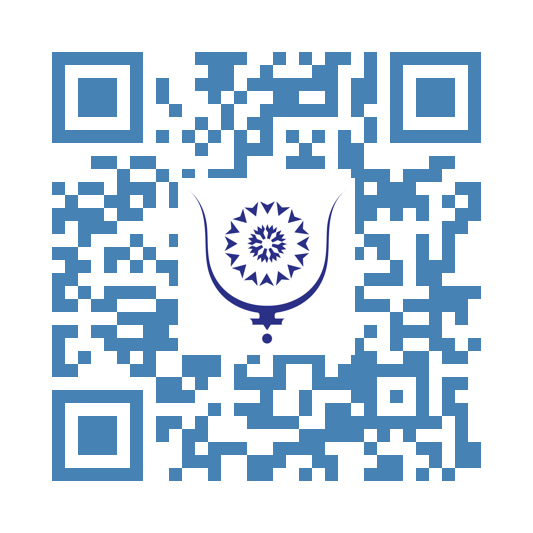Morocco, an Indispensable Pivot of the New American Strategy in Africa and the Atlantic... 6362
In a mini-summit, the first of its kind, President Trump hosted five West African heads of state, marking a new geopolitical dynamic in the region. The USA is now adopting a pragmatic and transactional approach focused on economic partnerships, security, and the development of strategic resources. Underlying this is, of course, the aim to counter the growing influence of China and Russia in the region.
This new orientation is reflected in the targeted selection of African partners. Washington favors countries perceived as open to investment and rich in critical resources, possibly at the expense of some regional heavyweights like Nigeria. The emphasis is on trade and investment agreements replacing the traditional official development aid, which has been abandoned in favor of bilateral deals centered on commerce, access to strategic minerals such as manganese, uranium, oil, cobalt, and securing supply chains.
One of the pillars of this new approach is strengthening security, which the region greatly needs. Discussions focused on combating terrorism, regulating migration flows, and military cooperation, with the intention to rely on trustworthy partners to project American power.
Let us set aside the behavior of the participants and the awkwardness that chilled the atmosphere. Ultimately, everyone was simply in their place according to their true standing.
One by one, before the president, each head of state introduced themselves in a kind of “name, first name, profession.” It is unfortunate that Mauritania, Gabon, Guinea-Bissau, Liberia, and Senegal separately expressed their economic, security, and political priorities.
- Brice Clotaire Oligui Nguema, the strongman of Gabon, emphasized the need for increased support for local processing of mineral resources, mentioning his decision to ban the export of raw manganese by 2029 to promote value addition locally, following the Botswana model. He expressed openness to industrial partnerships to develop refining and local production capacities.
- Umaro Sissoco Embaló of Guinea-Bissau highlighted the strategic importance of his country’s port and its rich bauxite deposits, requesting support to modernize port and logistics infrastructure, a key condition for attracting investment and regional economic integration.
- Joseph Boakai of Liberia, speaking in perfect English according to Trump, called for a more favorable framework for American investments, especially regarding legal security and anti-corruption efforts. He also requested enhanced cooperation in combating drug trafficking and regulating migration flows, key factors for regional stability.
- Mohamed Ould Ghazouani, president of Mauritania, seeks to develop manganese and uranium resources, calling for agreements to build local industrial sectors. He also proposed strengthened partnership in maritime security to fight piracy and illicit trafficking in the Atlantic.
- Bassirou Diomaye Faye of Senegal raised the issue of his country’s hidden debt and sought support from international financial institutions like the IMF, as well as enhanced economic and trade cooperation, particularly in renewable energy and information technology sectors.
All want to establish sustainable partnerships with the USA focused on local resource processing, infrastructure modernization, security, and economic governance. Were they warning that without American investments, other powers would take their place?
Although Morocco was not invited to this mini-summit, it occupies a central place in the new African and Atlantic geopolitical architecture thanks to several levers, notably the modernization of the Morocco–United States free trade agreement. Rabat seeks to expand this agreement to include emerging sectors such as artificial intelligence, defense industry, clean energy, and green hydrogen, beyond traditional textile and agricultural exports. The United States, wishing to secure certain supplies to reduce dependence on China, finds Morocco a good partner in strategic minerals with its phosphate and cobalt reserves, essential resources for the global energy transition. Morocco is also a major security partner. It hosts the African Lion exercises and is modernizing its armed forces with advanced American equipment, including HIMARS, drones, and missiles. It is also negotiating the acquisition of F-35 fighter jets.
In energy, Morocco aims to become a key supplier of green hydrogen for Europe and the United States, with projects integrating into future transatlantic energy supply chains.
In the context of the new American policy, Morocco can hope to better benefit from the situation, primarily through reaffirmed American support for Morocco’s sovereignty over the Southern provinces, which strengthens its position. The Polisario is thus more isolated and Algeria disoriented.
The Kingdom has also established itself as a regional hub thanks to its Atlantic anchorage, infrastructure, projects such as the port of Dakhla, the Nigeria-Morocco gas pipeline, and its political stability. It presents itself as the ideal gateway for American and European companies seeking access to the African market. This is a major asset for increased investment attractiveness. The geopolitical rivalry favors an influx of capital and structuring projects, especially in renewable energy, technology, and defense industries.
Add to this Morocco’s African diplomatic leadership.
Building on its diplomatic and economic successes, Morocco consolidates its role as mediator and leader in South-South cooperation and regional integration initiatives. It is the perfect pivot state for the region. The next step is for Mauritania to join the USA and the other four countries and clearly express its position on the Sahara issue.
The current geopolitical reshuffle offers unprecedented room to strengthen strategic partnerships, develop resources, ensure security, and promote the prosperity of peoples. However, these opportunities require agile diplomacy and the ability to anticipate rapid changes in alliances and international priorities. Have the Five seized this chance? They all maintain good relations with the Kingdom.




